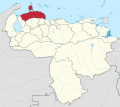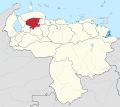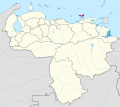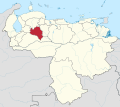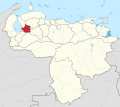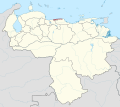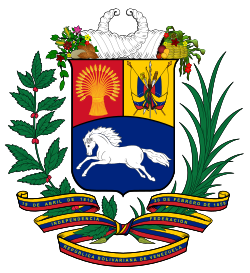 |
|---|
This is a list of the state-level constitutions of Venezuela.
Contents
The State Constitutions of Venezuela are the fundamental charters of the federal entities of Venezuela, which were approved by each of their respective regional parliaments (called the Legislative Councils of Venezuela) in accordance with the guidelines on State Public Power established in Chapter III (Articles 159–167) of Title IV of the 1999 Constitution of the Republic. [1]











